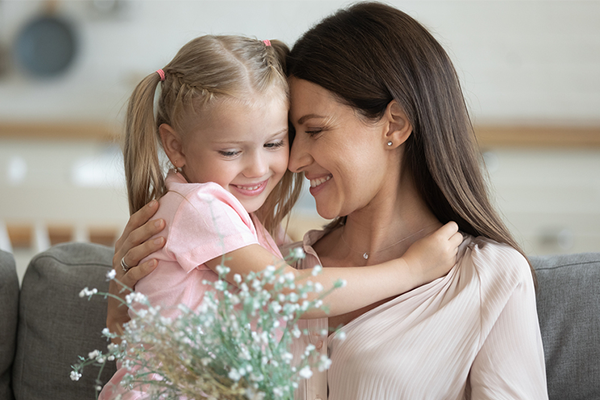“Say, ‘Thank you.’”
Can you count the number of times you’ve said this to your child? “It’s pretty universal,” laughed Dr. Christopher Drescher, a child psychologist at the Children’s Hospital of Georgia. “We all do that pretty ubiquitously.”
But—how much do we mean it?
Not that we have to fawn over every person who does something nice for us, but research does show that really, truly feeling thankful does have some positive benefits. “Gratitude is connected to generally feeling good and a positive affect,” said Drescher. “It’s connected to basic life satisfaction and positive self-image.”
Feeling thankful is also connected to so many other things in life that make us happy: a positive outlook on life, social connections, helping others and more. It also is a great antidote to envy or jealousy: “It’s hard to be envious when you’re practicing being grateful,” said Drescher, “and gratitude builds on itself.”
So beyond saying a quick “thank you,” here are a few ways we can help instill an attitude of gratitude in our children (and in ourselves, too!).
- Write it down. Evidence shows that the act of writing—actually putting words down on paper—is pretty meaningful when it comes to practicing gratitude. “And it’s not like trying to get your kids to eat vegetables,” said Drescher. “This is a really simple thing that’s pretty easily accepted.”He suggests encouraging each family member to write down five things they’re grateful for on a regular basis, which could be every day or even just every week. “The family could share that at Sunday dinner or post it on the fridge so everyone can see what we’re grateful for, or it could be more personal, like a journal,” he said.
- Go beyond the quick thank you. If there’s someone that your child is particularly thankful to or thankful for but perhaps hasn’t expressed that properly, you can encourage him or her to spend a little extra time in telling that person. That could be in the form of a letter or an email, or a picture drawn by younger kids. It could even be a gift or other token of gratitude. Or, say a grandparent gave your child a gift last Christmas that your child still really loves. It’s a great idea for your child to thank that grandparent again the next time they visit. “This isn’t something you need to do every day, but maybe try for once a month to take the time and reflect and take the extra step to reflect on how you’re grateful,” says Drescher.
- Include gratitude in your prayers or meditation. If you’re religious, make sure your child’s prayers include thanks for what they’re grateful for—not just requests for things they want. If you’re not religious, you can teach your child to meditate on the good things present in their life. A simple way is to have your child sit quietly, close their eyes and call to mind the people or things they’re grateful for, noticing how it feels to recognize each of these.
- Give back. When we have a lot to be thankful for, it’s great to teach your kids to give back. “I like putting gratitude into action,” said Drescher. So that could include helping to serve food to families in need; donating gently used or new toys and clothes; and more.
- Be a gratitude model. “It’s never too early for you to show your kids how to express gratitude,” said Drescher. “If you want your children to be grateful and say, ‘Thank you,’ then you need to say, ‘Thank you.’ If you want them to do acts of service, then you need to show them what acts of service look like. They’re never too young. For example, you can put your baby in a carrier and bring him or her to a food bank with you. Over time, your child will show you when he or she is ready to participate more actively.”
Remember, too, that feeling grateful is not just for when you’re already feeling good and happy. Focusing on what you have and being thankful is a great way to feel better when you’re down, and it’s something parents can help kids think about.
“And it’s not a lecture, as in, ‘Stop whining and be grateful,’” said Drescher. “No kid’s going to respond to that. But you can say, ‘I know you’re struggling right now, and what can help is reflecting on some things you’re thankful for in life. Maybe one thing didn’t go your way, but what are some things you’re grateful for?’ That can be one way to help your child refocus and better deal with a problem.”




